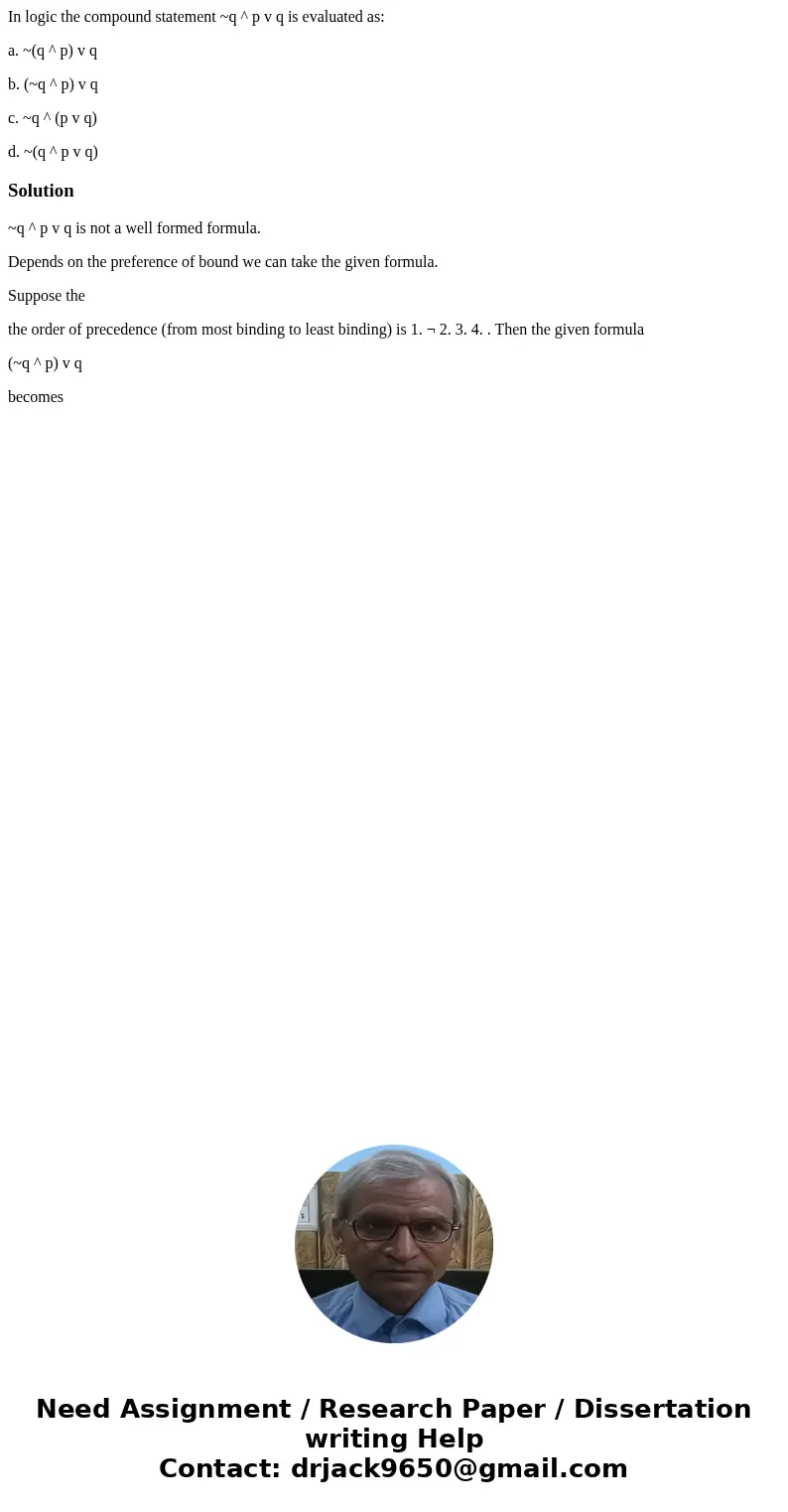In logic the compound statement q p v q is evaluated as a q
In logic the compound statement ~q ^ p v q is evaluated as:
a. ~(q ^ p) v q
b. (~q ^ p) v q
c. ~q ^ (p v q)
d. ~(q ^ p v q)
Solution
~q ^ p v q is not a well formed formula.
Depends on the preference of bound we can take the given formula.
Suppose the
the order of precedence (from most binding to least binding) is 1. ¬ 2. 3. 4. . Then the given formula
(~q ^ p) v q
becomes

 Homework Sourse
Homework Sourse